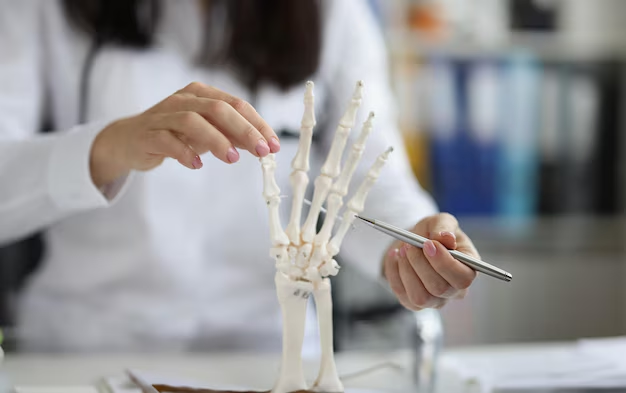Your Guide to What Can Cause Osteoporosis
What You Get:
Free Guide
Free, helpful information about Osteoporosis FAQ and related What Can Cause Osteoporosis topics.
Helpful Information
Get clear and easy-to-understand details about What Can Cause Osteoporosis topics and resources.
Personalized Offers
Answer a few optional questions to receive offers or information related to Osteoporosis FAQ. The survey is optional and not required to access your free guide.
Uncovering the Causes of Osteoporosis: What You Need to Know
Osteoporosis is a condition that silently chips away at your bone health, often without showing signs until a bone fracture occurs. It affects millions of people worldwide, particularly older women, yet many are unaware of its underlying causes. This article delves into the fundamental reasons behind osteoporosis, providing clarity on how lifestyle choices and other factors play a significant role in bone density loss.
Understanding Osteoporosis
Osteoporosis is characterized by weak and brittle bones, which result from a decrease in bone density. It often leads to fractures, typically in the hip, wrist, or spine. But what causes this stealthy loss of bone strength?
Key Contributors to Osteoporosis
1. Hormonal Changes
One of the primary factors is hormonal imbalance. In women, the decline in estrogen levels during menopause is a significant trigger for rapid bone loss. Men, too, are at risk, especially when they experience a drop in testosterone levels.
2. Dietary Deficiencies
Poor nutrition can significantly affect bone health. A lack of calcium and vitamin D is a notorious contributor. Calcium is essential for building strong bones, while vitamin D facilitates calcium absorption. Without adequate amounts, bones become weak.
3. Sedentary Lifestyle
A physically inactive lifestyle is another culprit. Engaging in weight-bearing exercises helps maintain bone density. A lack of such activities can accelerate bone loss, heightening the risk of developing osteoporosis.
4. Genetic Factors
Your genetic makeup might also predispose you to osteoporosis. If your family has a history of the condition, your chances increase. While you can’t change your genetic predisposition, understanding it can help you take preventive measures.
5. Excessive Alcohol and Tobacco Use
Both smoking and excessive alcohol consumption are linked with increased bone loss and a higher risk of fractures. These lifestyle choices impede the body’s ability to build and maintain healthy bone tissue.
6. Chronic Medical Conditions
Certain diseases like rheumatoid arthritis, hyperthyroidism, and chronic kidney disease can affect bone health. Additionally, medications such as glucocorticoids used for inflammation are known to contribute to bone density loss.
Caring for Your Bone Health
Knowing the causes is the first step to prevention. Adopting a bone-friendly lifestyle is crucial. A balanced diet rich in calcium and vitamin D, regular exercise, and avoiding smoking and excessive alcohol can drastically reduce your risk.
Beyond these lifestyle changes, it's essential to recognize the broader impact osteoporosis can have, particularly if it leads to medical treatments and financial burdens associated with managing the condition. The good news is there are avenues for financial support and education to help manage health-related expenses.
Financial and Educational Support Opportunities
Whether you're dealing with osteoporosis or aiming to prevent it, exploring financial assistance and educational resources can provide much-needed support. Here are some options:
- 💰 Medicare and Medicaid: These programs offer coverage for bone density tests and treatment plans. Check eligibility to aid with medical expenses related to osteoporosis.
- 🎓 Educational Grants: Scholarships and grants are available for those studying in fields related to health and medicine, potentially providing insight into health conditions like osteoporosis.
- 🏥 Non-Profit Organizations: Groups like the National Osteoporosis Foundation may offer resources for financial aid and support for those affected.
- 🏦 Debt Relief and Credit Counseling: If osteoporosis leads to unexpected medical debt, consider credit counseling services to manage and relieve financial strain effectively.
By understanding osteoporosis and leveraging available resources, you can take proactive steps towards maintaining your bone health and achieving financial wellness. Knowledge is power, and with the right tools, you can safeguard your health and financial future.
What You Get:
Free Osteoporosis FAQ Guide
Free, helpful information about What Can Cause Osteoporosis and related resources.

Helpful Information
Get clear, easy-to-understand details about What Can Cause Osteoporosis topics.

Optional Personalized Offers
Answer a few optional questions to see offers or information related to Osteoporosis FAQ. Participation is not required to get your free guide.


Discover More
- a Nurse Is Caring For a Client Who Has Osteoporosis.
- a Percutaneous Is Performed To Treat Osteoporosis Related Compression Fractures
- Can Alcohol Cause Osteoporosis
- Can I Do Pilates If I Have Osteoporosis
- Can I Reverse Osteoporosis
- Can Men Get Osteoporosis
- Can Osteoporosis Affect Teeth
- Can Osteoporosis Be Cured
- Can Osteoporosis Be Painful
- Can Osteoporosis Be Reversed
